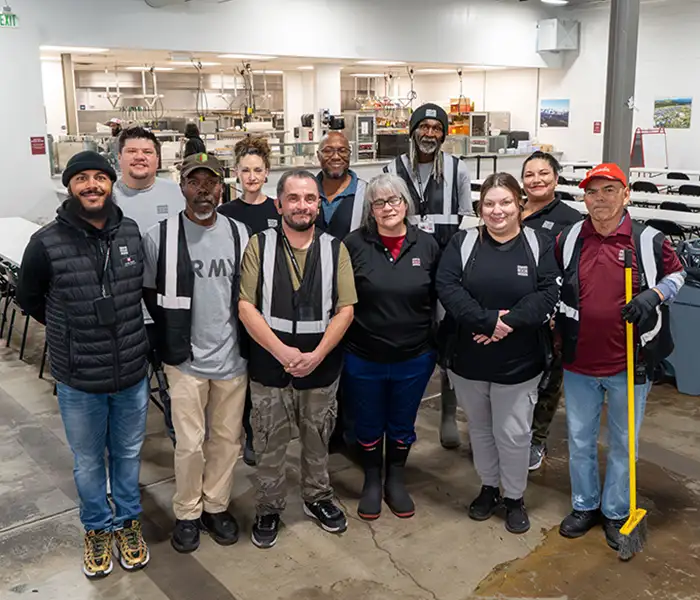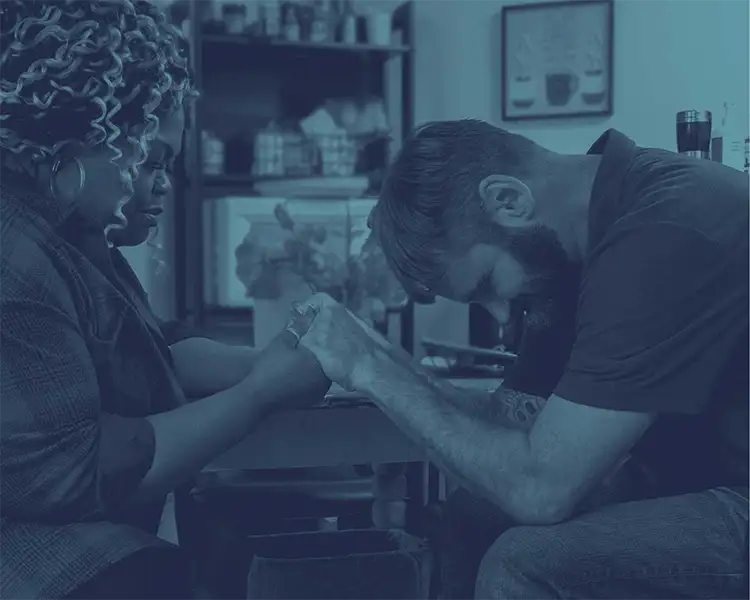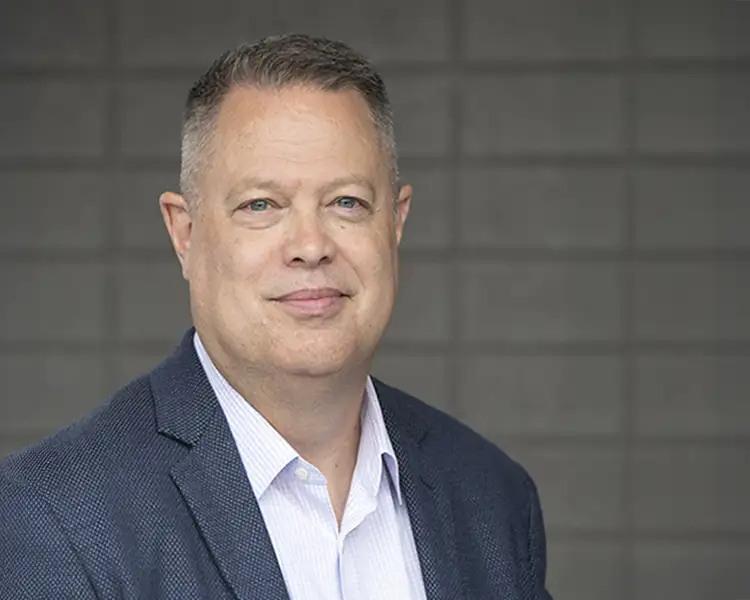Mental Health Awareness Month is in full swing, and at Denver Rescue Mission, we understand the importance of mental health and trauma-informed care when it comes to experiencing homelessness. Every person who walks through our doors for help has a story. We strive to come alongside each individual, meeting them at their unique points of need and empowering them each and every day.
How Much Does Mental Health Impact Those Experiencing Homelessness?

Of those who reported mental health as a contributing factor, 38% were single adults and 30% were youth under the age of 24.
In January 2024, Metro Denver Homeless Initiative’s Point-in-Time Survey* found 9,065 people experiencing homelessness on a single night in Denver.
Of those, nearly a third reported a mental health concern as a contributing factor to their homelessness. That’s 2,843 people across seven counties in and surrounding Denver who are experiencing homelessness, at least in part, due to a mental health concern.
As a result, mental health is one of the core factors we have to consider when helping our guests and program participants overcome the challenges they face in homelessness.
The Importance of Connection and Community
Just the homeless experience itself can be extremely traumatic from lack of safety, witnessing or experiencing violence, the uncertainty, and the absence of supportive relationships. According to the Substance Abuse and Mental Health Services Administration of the United States,** “How someone responds to a traumatic experience is personal. If there is a strong support system in place, little or no prior traumatic experiences, and if the individual has many resilient qualities, it may not affect his or her mental health.”
For our guests, that key support system is often missing. Metro Denver Homeless Initiative’s survey also reported negative or failed relationships and disconnection from family as the number one cause of homelessness, even above the inability to pay rent/mortgage, loss of job, or evictions.
That’s why reconnection with a positive community is so important for the mental health of our shelter guests and New Life Program, Bridge program and Pathway Home participants.
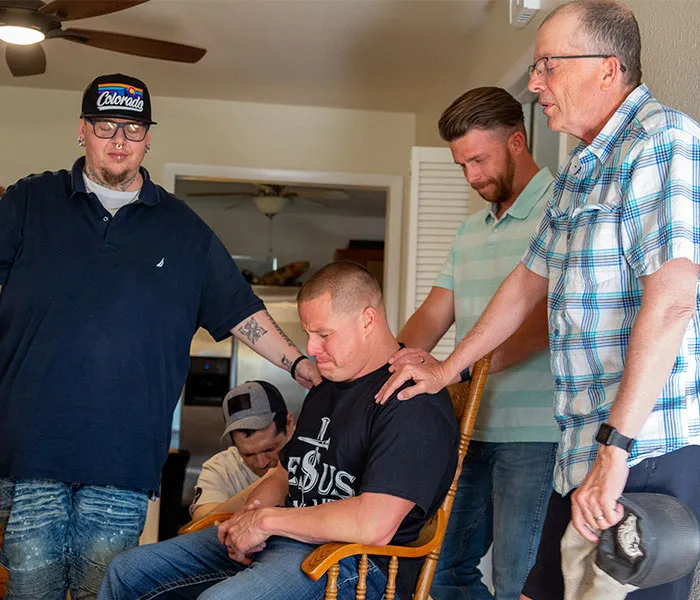
Reconnecting with a positive community through church, family, friends, and support groups both inside the Mission and out has a huge influence on the success rate of people who complete our life-changing programs. Our New Life Program, for example, has an 86% success rate (individuals still in housing 1 year after completing the program).
Looking For More Content Like This?
See more ways you can help people in need in our community by signing up to receive emails from the Mission!
Rebuilding Resilience: Trauma-Informed Care at Denver Rescue Mission

Olivia Llewelyn-Carter, New Life Program Counselor
Taking small steps each day toward care, connection and understanding is what allows us to meet our guests at their physical and spiritual points of need.
According to our New Life Program Counselor, Olivia Llewelyn-Carter, “Understanding the effects of trauma is very important. It’s about rebuilding that sense of empowerment, or as I like to say it’s rebuilding resilience. It’s understanding that just because this thing happened to you does not mean that you are XYZ rather, you’re resilient because you’re sitting her in front of me right now, talking about it.”
Understanding responses and triggers also comes with understanding the brain chemistry behind the trauma. Olivia says, “[In traumatic stress,] the limbic system is on overdrive. With this really overwhelming experience, we may not know how to process it. So, over time with chronic stress and chronic traumatic experiences, it almost severs the brain’s ability to regulate. And with our prefrontal cortex not being able to regulate and our limbic system on overdrive, it’s essentially hijacking our ability to sit and really think and process rationally…”
Trauma biologically causes us to not be able to process our experiences and emotions. “That’s why individuals who are chronically stressed or who have PTSD or even complex PTSD have a hard time regulating emotions,” Olivia says. We serve our guests and program participants in a trauma-informed approach through:
- Creating an Environment of Awareness
- Using Intentional Language
- Having Motivational Conversations
- Identifying Needs
Creating an Environment of Awareness
The environment we create within our facilities through layout, structure, design, and more is important in providing a sense of safety and comfort for our guests.

“Mental health is usually a current that’s flowing through some of the situations that prompt people into homelessness. But how do we continue to create doorways of softening? Let’s create an environment that provides relief from this crisis and allows us to really come alongside our guests and participants in the least judgmental manner.”
Joy McGuire-Olson, Associate Clinical Director
Other ways we address different forms of trauma in this environment is through intentional and interactive forms of healing:
Therapy Animals
Therapy animals like our therapy dog George, create a unique sense of comfort, allowing program participants to open up and work through deeper issues in their lives. Through the process of caring for animals and agriculture at Harvest Farm, individuals also learn responsibility and how to care for themselves.
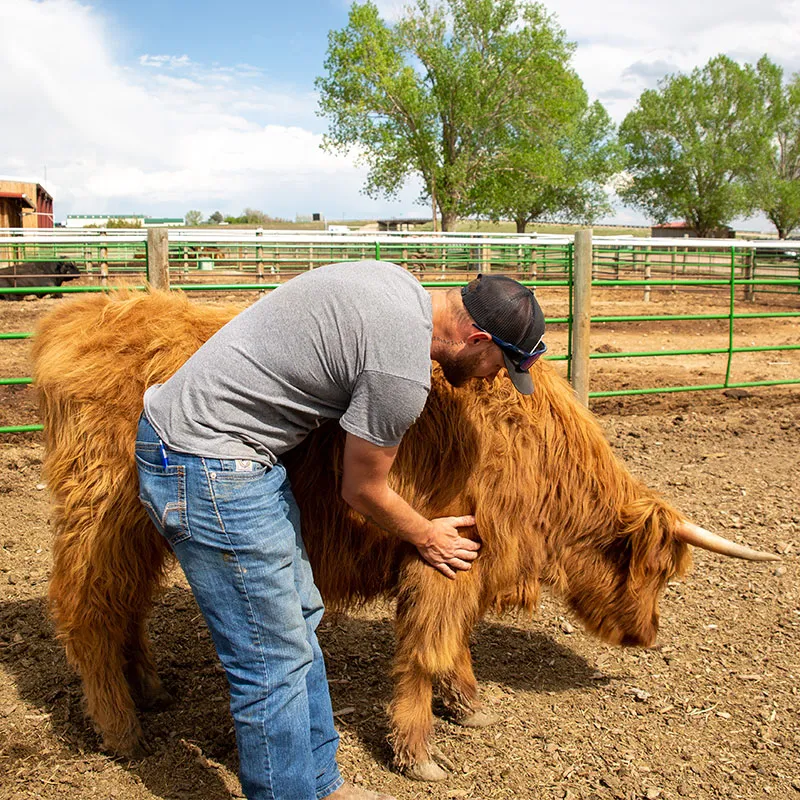

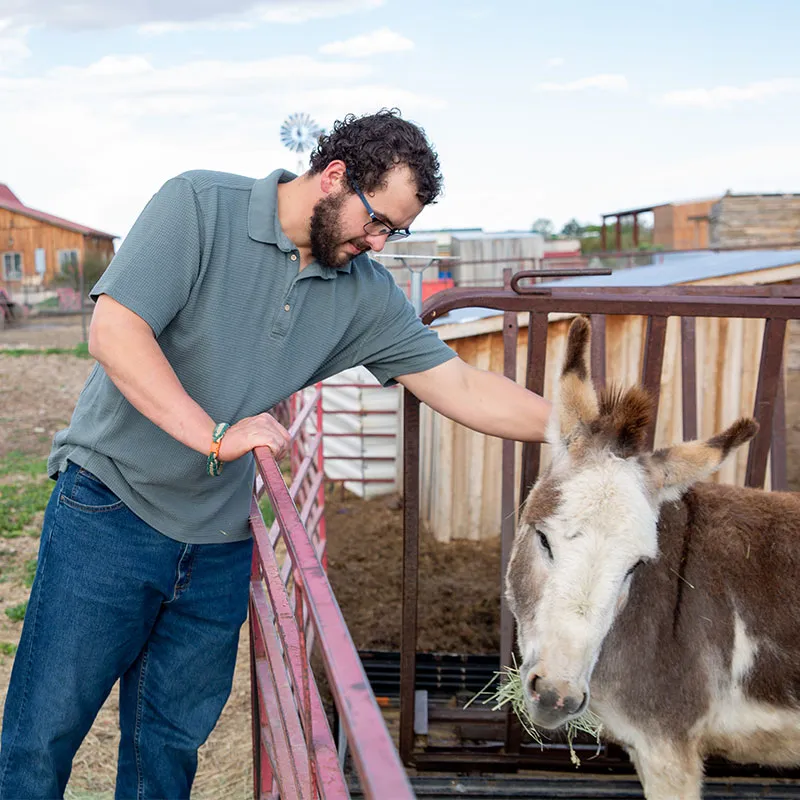
Mindful Movement
Mindful movement helps process traumatic experiences and allows participants to tap into their body to use movement in healing ways.
Process Groups
Process groups create space for individuals to have two-way conversations to process what’s going on in their lives. Process groups include:
- Anger Management
- Cognitive Behavioral Therapy
- Grief and Loss
- Caregiver Education Support
- Relational Skills
- Financial Skills
- Building Character (for youth)

Intentional Language
The words we use matter. In Ephesians, the Bible tells us we should use our words to build each other up, and how we use our words with our guests and program participants is a great example of that. We try to phrase questions and responses with “I’ve noticed…” or “What I see is…” rather than assuming a person’s motivations or putting words in their mouth. Instead of asking: “Why are you mad?” We might say “I noticed you looked distressed earlier, how are you, how can I help?”
“Language and the words we choose are super important. For example, downtown, instead of calling them “trash bags”—because a lot of people experiencing homelessness put their belongings in these kinds of bags—we refer to them as “plastic bags” or “storage bags.” That’s part of being trauma-informed.”
Rachel Lopez, Clinical Director
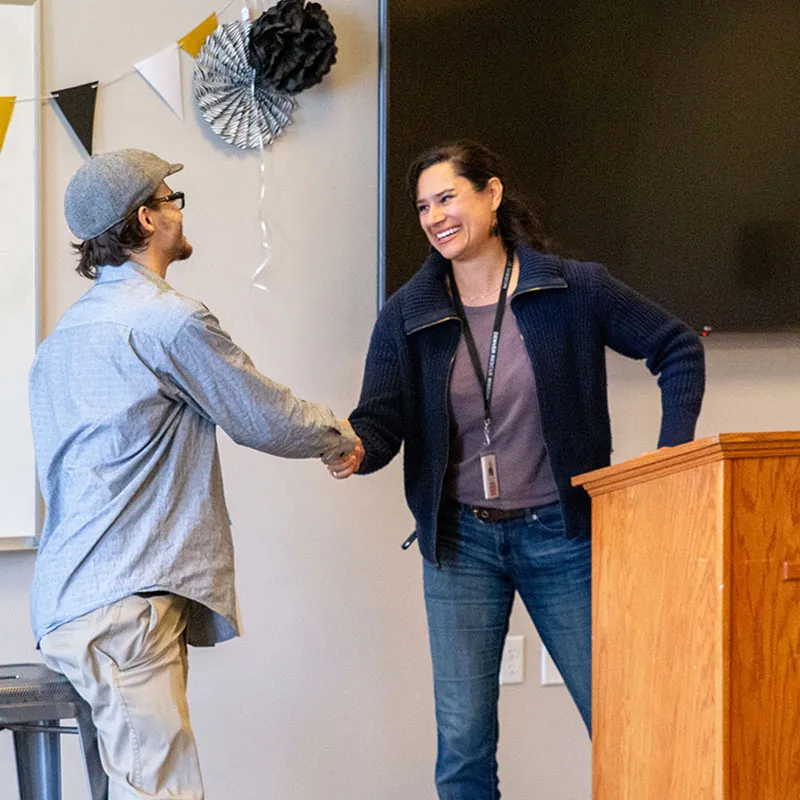
Motivational Conversations
Another part of building each other up is having motivational conversations. We ask questions that lead to people making decisions and choices on their own.

Asking our guests questions and having a conversation about their options leads to empowerment and self-sufficiency.
These conversations also build trust. While experiencing homelessness, people often feel they have few people they feel they can trust. These motivational conversations allow our staff to become someone they can depend on, as they work with them to find ways to improve their situation.
“Intake Specialists at our shelters conduct motivational interviews to understand the guest, build rapport, and enhance intrinsic motivation for change through meaningful dialogue, with the goal of identifying their place in the stages of change.”
Terry Anderson, Associate Clinical Director
Other motivational conversations happen with mentors as well. Every year, more than 100 volunteers partner with us to provide community-building mentoring that helps our program participants get and stay connected with relational support both during their time in our program and after they leave.
Identifying Needs
It’s hard to build trust and rapport with someone if you don’t know their unique needs. Our intake team works hard to discover with our guests what their individual needs are as soon as they come through our doors. For some of our guests in 24/7 shelters, the group setting can be overwhelming, making it difficult to get critically needed sleep. So we offer ear plugs, eye coverings or a quieter area to sleep in if available.
Beyond the urgent and more timely needs of shelter guests, we also equip our program participants with the resources they need to be successful after they leave our programs: Last year alone, hundreds of Mission program participants were connected with mental health care.
“We encourage them to connect early on, with resources outside of the Mission. So, when they’ve graduated, they’re not lost and alone. They’ve already connected and plugged in somewhere that can continue providing that care. Whether it be addictions, counseling, family counseling, trauma counseling, peer coaching, whatever it may be.”
Olivia Llewelyn-Carter, New Life Program Counselor
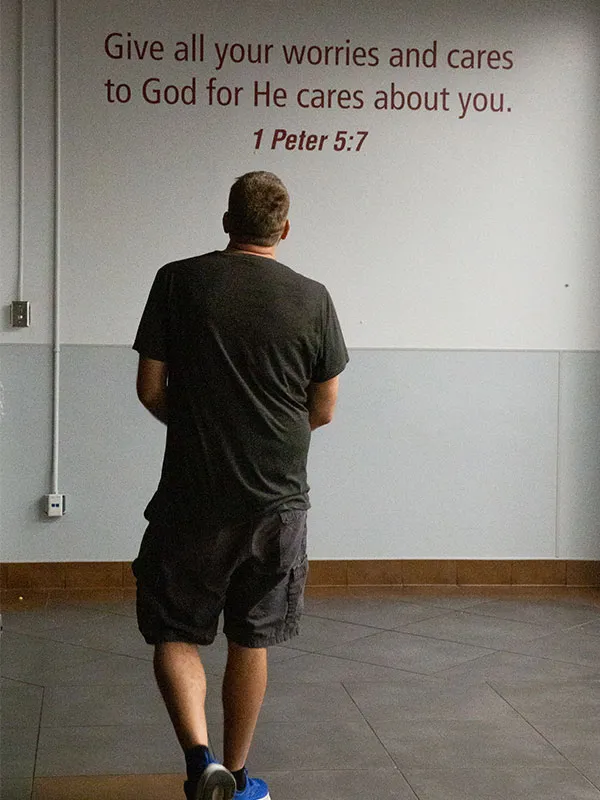
As we recognize mental health awareness month, we want our guests and program participants to know that they are not alone. Together with supporters like you, our community comes together all year long to provide emergency services like meals and shelter, rehabilitation for men, transitional programs for families and individuals working their way out of homelessness, and community outreach through our food pantry and partnerships. Thank you for providing hope and healing for people in critical need in our community.
Are You Looking to Help Change Lives?
Faithful supporters like you help us share the love of Jesus as we provide support for immediate needs, long-term change and healing. Thank you for helping transform lives.
* Metro Denver Homeless Initiative (MDHI): MDHI State of Homelessness Report 2023
** Substance Abuse and Mental Health Services Administration (SAMHSA): Trauma and Violence – What is Trauma and the Effects?




